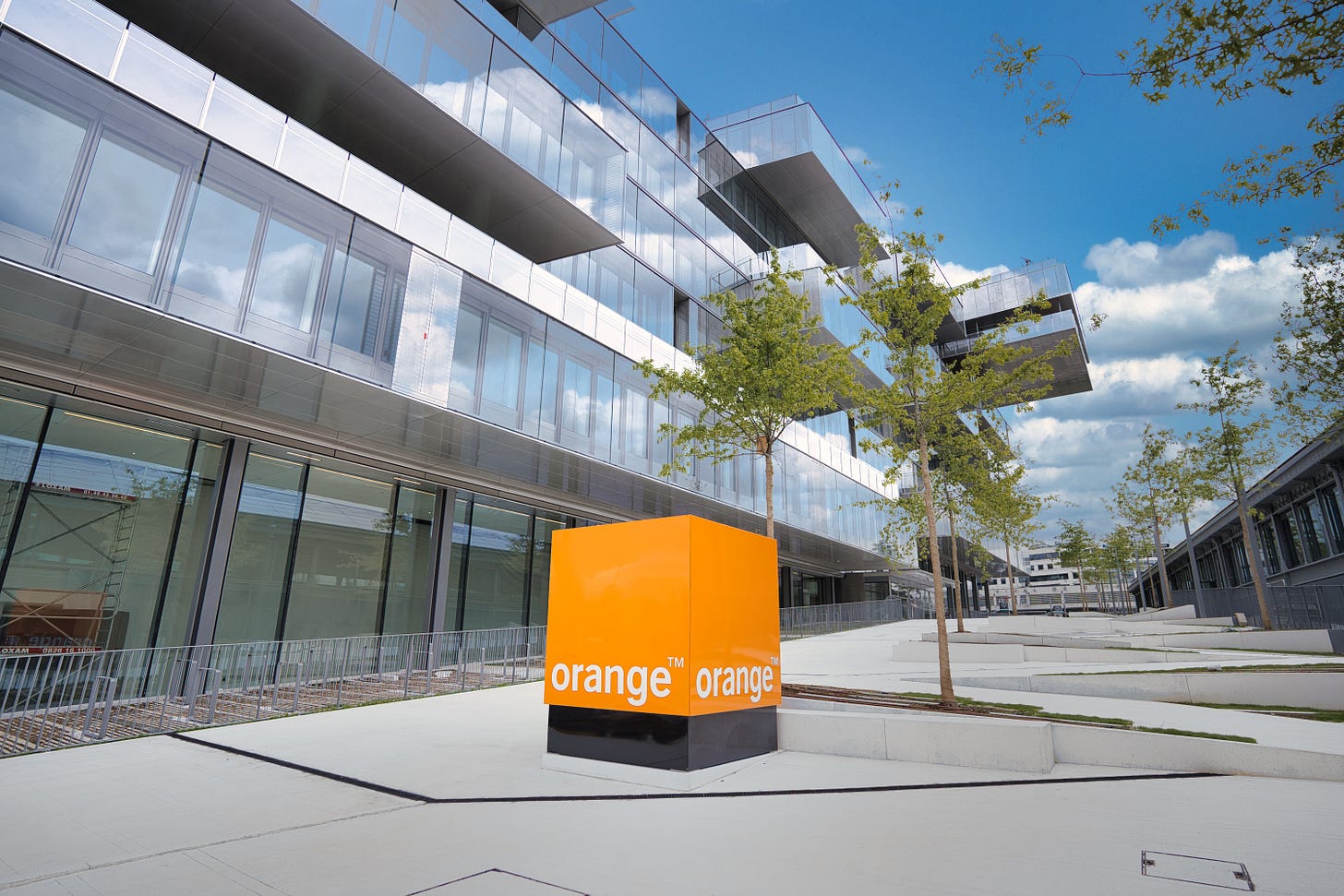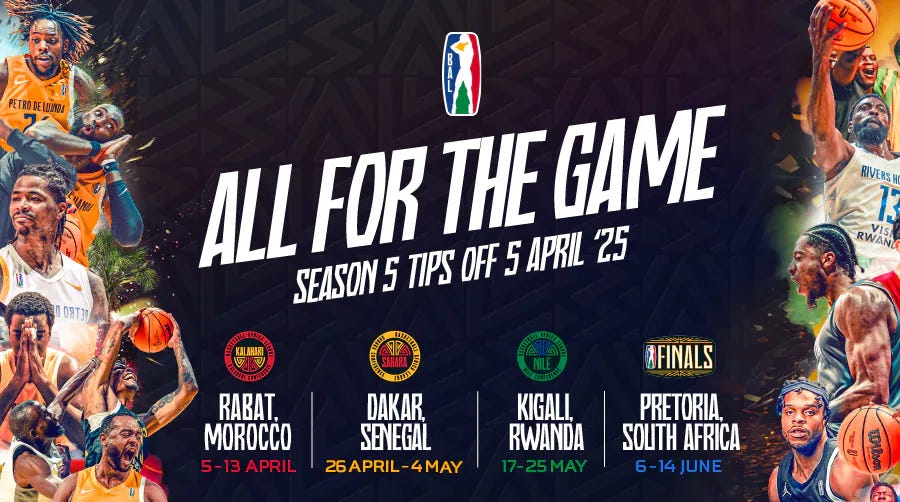AI goes local, and Morocco enjoys the benefits of sports investment 🎯
Orange partners with OpenAI, Basketball Africa League comes to Morocco, and Stears' pivot leaves a gap.
Hello there!
November in Lagos can be described as the arts and creativity month, with events like ART X Lagos, Ake Arts and Book Festival, and the Africa International Film Festival held at different points. It is now giving way to December, with its end-of-year festivities and gyrations. But before the festivities start, here's a look at some of the most interesting happenings over the last two weeks.
In today’s Digest, we discuss:
Orange’s partnership to train AI models on African languages.
Basketball Africa League’s expansion to Morocco, and
The gap left by Stears’ pivot to B2B.
Center Spread 🗞️
AI speaks Wolof
French telecommunications company Orange has partnered with Open AI and Meta to begin training artificial intelligence models on African languages. The project will start with two languages, Wolof and Pulaar, spoken by over 20 million people in Francophone West Africa, before expanding to include Swahili, Lingala, and Bambara.
While the models will be developed primarily to help Orange communicate with its customers in their languages, they will be licensed for health and education purposes when they are fully developed.
This partnership between OpenAI, Meta, and Orange got us thinking about the possibilities training AI models on African languages could have for the continent’s media and creative ecosystem, particularly in preserving languages and expanding content distribution with minimal capital expenditure.
Africa is home to over 2,000 languages, many of which are at risk of extinction due to limited use in formal media. By developing AI tools for languages like Wolof, Pulaar, and Swahili, this initiative will help document and preserve these languages, and enable media organizations and creators to produce culturally relevant content in local languages.
This will make media products more inclusive. Content in diverse African languages will become accessible to previously underserved populations, including non-literate audiences, through voice-based interfaces and localized storytelling. This inclusivity enables broader content distribution, breaking down language barriers and allowing media companies to reach millions more viewers and listeners. It could also translate into wider revenue-generating capacity.
However, there are some concerns. A lot of these languages are what you would call low-resource languages, meaning there is very little data with which to train these models on. Collecting this data will prove challenging.
The Basketball Africa League moves to Morocco
The Basketball Africa League (BAL) will kick off its fifth season in Morocco in April 2025, at the newly renovated Prince Moulay Abdellah Sports Complex in Rabat, the first of the league's games to be played in the country.
The league’s first four seasons were played in Egypt, Senegal, Rwanda, and South Africa. Now, not only is the BAL switching things up by including Morocco, but it's also changing the finals venue from the BK Arena in Kigali where it has always been held to the SunBet Arena in Pretoria, South Africa.
In Communiqué 46, we wrote that “improving existing local facilities, such as stadiums, training centers, and community sports complexes, and building new ones would help drive increased investment in sports and also create a suitable environment for athletes to train up to international standards.” Following this advice is already bearing fruit for Morocco.
Since 2009, the country has made a concerted effort to develop its sporting facilities. Those efforts have borne fruits in many ways, with Morocco becoming the first African nation to reach the FIFA World Cup semi-finals. Morocco will also host the 2025 African Cup of Nations, and the 2030 World Cup alongside Portugal.
Crunch Time 📈
Stears-shaped shoes to fill
Stears, a pan-African data company, gained prominence for its insightful and expert-driven analysis of politics, business, finance, economics, and tech. However, the company has since pivoted to focus solely on its enterprise business, winding down its consumer-facing media division, including its subscription-based publication, Stears Premium. This shift reflects its goal to become a data and intelligence powerhouse.
Stears’ success stemmed from working with professional economists over traditional journalists, which enhanced its credibility and enabled deep, actionable insights—a critical need in Africa’s fragmented data landscape. Its subscription-based model further aligned its editorial and business goals, ensuring a focus on quality analysis rather than ad-driven page views.
Stears’ pivot leaves a gaping hole in the market for high-quality, expert-led economic and political analysis in Africa. While entities like The Archivist and Dataphyte are stepping up, none fully replicate Stears’ depth or impact. What would filling this void require? Find out in Communique 48.
Curiosity Cabinet 🗄️
The Da Design story: How a University of Lagos graduate built one of Africa’s most prominent design agencies.
The making of a modern hit factory: Driven by artists like Olivia Rodrigo and Billie Eilish, sad music is the rave. This is the music executive behind it.
Founder's Connect AMA session: Podcaster FK Abudu and YouTuber Steve Ndukwu discuss the business of content creation.
The influencer lawsuit that could change the industry: They say imitation is the highest form of flattery, but this Amazon influencer is suing another influencer for “stealing” her vibe.






Super stoked to see how BAL is expanding across the continent. Will feel even better with Nigeria become a host!